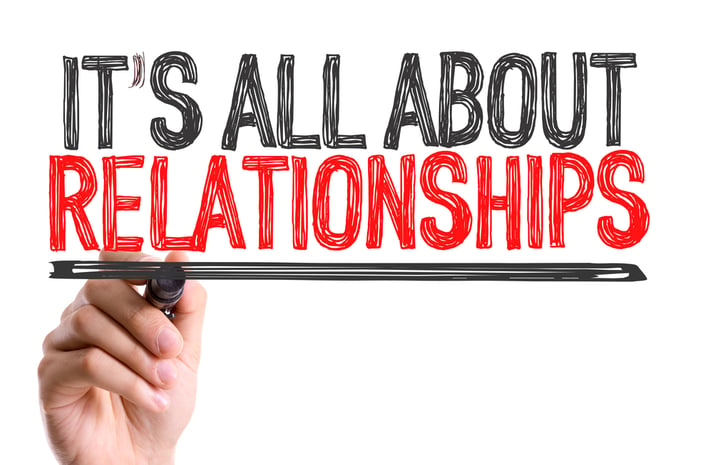John Mackey is the founder and CEO of Whole Foods and a staunch proponent of making sure that business is as impactful as possible. In his 2013 book, Conscious Capitalism: Liberating the Heroic Spirit of Business, Mackey gives an overview of the difference that businesses have made since the industrial age.
Mackey shows that the services that business provides have helped to cure widespread illness, alleviate hunger, connect people, and produce unprecedented access to information.
However, while lauding these accomplishments Mackey also shows that our approach to business up to this point has largely focused on growth while neglecting the net impact that business has on its many stakeholders.
In order for a business to maximize value for society, Mackey argues that it must center on improving and maximizing the well-being for everything that it touches.
Throughout the rest of the book, Mackey gives an in-depth analysis of how he has taken this philosophical approach to business to transform his famous company Whole Foods.
Conscious Capitalism: Liberating the Heroic Spirit of Business is the best practical book that I have read on how to make a comprehensive difference in a business.
I would highly recommend reading it, and I’m going to summarize the most important points of it below.

The Steps of Practicing Conscious Capitalism Summarized
1. Define your higher purpose
What is it? Your higher purpose is the reason for your business's existence and the power it has to be transformative. Your higher purpose is unique to your business. For example, Google’s purpose is to “Organize the world’s information and make it accessible,” and Disney’s purpose is, “To bring happiness to millions.”
Why it matters: Your customers care more than ever about paying for an experience that can transform their lives. Your business should provide true value. Meaning is one of the most precious commodities that somebody can buy. A higher purpose touches the most human parts of who we are and is transformative. When you sell meaning and value to your customers you are able to build customer loyalty and offer your customers a life-changing service.
How do I create a higher purpose for my business?
Think about the purpose of your business and the greatest impact that you want to have on your customers, your family, your employees, and the community. Make a list of bullet points that describes the ways that your business impacts the community, even if it's just locally.
Once you have listed out the impact that you want your business to have you can write out your higher purpose.
Here are some examples of a higher purpose for cleaning, JanSan, and restoration that I created:
ABC carpet cleaning: “To provide homeowners with a sense of confidence and belonging through cleanliness”.
ABC restoration: “To bring our customers home in the face of disaster”.
ABC Janitorial: “To ensure peace, safety, and connection exists during every interaction”.
2. Stakeholder Integration
What is it? Your organization makes a remarkable difference in the lives of your clients.
You provide your customers with a clean environment where they can live happy and healthy lives, and save their houses from permanent damage and long-term future repairs.
But it doesn’t just end there.
As you continue to scale your business, you can continue to scale the scope of your impact on your customers, employees, the community, and the environment.
Your stakeholders are everybody that the services of your business touch. This includes customers, employees, your family, the community, your suppliers, etc.
Stakeholder integration is the act of seeing the interconnectedness of all of these parts of your business and the effect that your activity has on them.
Why does it Matter? When it comes to business many people just think of the stakeholders that are set to benefit from profit generation. The truth is that a business impacts the lives and well-being of multiple people. As a responsible business owner, you are accountable for the well-being of all of the stakeholders that your business touches.
How do I make a difference in the lives of my stakeholders? In the Book Net Positive: How Courageous Companies Thrive by Giving More than They Take by Paul Pulman, the author talks about how Unilever integrates all stakeholders by giving more than it takes.
You want your business to be value positive, meaning that all of your stakeholders need to positively benefit from the activity of your business:
- Be honest in your dealings with your customers and make sure that you deliver them exactly what they pay for
- Pay your employees a living wage and express genuine appreciation for their contribution
- Don’t use chemicals or equipment that can damage the environment or people’s bodies. There are plenty of alternatives that exist today that perform just as well as other products while eliminating waste and not harming others.

Mackey has a lot to say about leadership because he has built one of the most successful grocery stores in US history.
In this section of the book, Mackey gives a historical overview of the development of leadership styles since World War II.
Many of us are familiar with the idea of a manager that barks orders and aggressively takes on the managerial helm in order to get their employees to fall into line. According to Mackey this “command and control” style of leadership is an offshoot of World War II.
Remnants of this approach can still be found in jobs today, and Mackey argues that over the last few decades society's approach to leadership has shifted to primarily focus on stakeholders.
The approach goes like this: managers and CEOs will make executive decisions that benefit owners/shareholders first. When this happens it can usually mean that the needs of employees and others that are impacted by the decisions of leadership might come last.
This approach to leadership no longer works. It creates employees that resent their managers and leads to apathy and even fear at work. In order to create a business that has lasting success with its employees and customers, you must be a conscious leader.
Why does it Matter? Leadership is about change and transformation. If you want to be a leader that transforms your business into a successful organization that has loyal employees and customers, you will need to be a conscious leader capable of inspiring the people and processes around you.
How do I create the change that I wish to see in the world?
Conscious leaders imagine and breathe new life into the world. They have high intelligence (IQ), emotional intelligence (EQ), spiritual intelligence (SQ), and systems intelligence.
It's not enough to just make strategic executive decisions, you must also be thoughtful, sensitive, and reflective in your dealings with everyone.
Emotional intelligence has received quite a bit of focus over the last decade. It is one of the most coveted qualities of people who aspire to leadership. Those who have emotional intelligence are able to curb their ability to react impulsively to situations and are aware of how their feelings impact performance. These types of leaders are able to see outside of their feelings and consider them in relation to others and cultivate empathy for the experiences around them.
Spiritual Intelligence describes being able to pursue a purpose that is higher than yourself, and awareness of how your actions connect to the whole. As a business owner, you have an outsized opportunity to impact the lives of those around you. The best way to make this a reality is by centering your purpose on a higher calling than just financial returns. You must see the interconnectedness of all elements. You must define the higher purpose of your business and make sure that you and your employees always strive to live it.
Systems Intelligence describes an understanding of how the different parts of the organization connect, and how everyone’s actions including yours can impact the whole. A leader that has systems intelligence will be able to see relationships and how all of them connect. They are able to break them down into parts and create value for everyone in their company.
Servant Leadership
Above all, you want to be a servant to others. Countless research and wisdom gained from world history have shown that the most meaningful difference in life is made through serving others. Your business is a platform for being able to bless people’s lives, and the surest way to set an example and inspire change is to always be of service.

Developing these qualities
To be an effective leader you don’t need to be charismatic, you need to develop the right qualities and do the right thing. Some of these qualities come more naturally than others, but they can all be developed through mindful practice. You must follow your heart, implement feedback, care for others, strive to truly listen, and live to your fullest potential.
Don’t get discouraged if it takes time; as long as you are always growing and you are bringing these traits to every aspect of your life, including work, you are doing the right thing.
4. Conscious Culture and Management
What is it?
At this point of his book, Mackey began to branch off in a different, much-appreciated direction. There are currently plenty of books available on how to run a socially responsible business, but oddly enough very few books talk about the culture of a business organization.
If you don’t plan to read anything else in Conscious Capitalism, then I would start at this chapter and read until the end because you don’t want to miss these valuable insights.
Below I’ve broken down the points that Mackey covers:
Culture: A business’s culture is its “practice of values over time and the way that the people who interact with it recognize how they do things”.
In order to build a robust culture at Whole Foods Mackey focused on the values of decentralization, empowerment, and collaboration:
Decentralization, Empowerment, and Collaboration: Mackey didn’t want to commandeer every decision that his business made. Instead, he let employees in their own regions/stores of Whole Foods work autonomously and problem-solve where needed. He recognized that what a store needs in Seattle might be completely different than in Arizona.
This approach to leadership comes with a high degree of trust, but Mackey believes in his employees and knows that they are better equipped to understand the unique needs of the area than he is.
Mackey puts a significant amount of faith into his employees and counts on them to work together to come up with creative solutions.
How to Create It?
Mackey uses the acronym “Tactile” to break down everything that the culture of a conscious business needs to have
Trust- Trust that those around you will make the right decisions, that you’ve all bought into the mission of the business, and that you are working with everyone’s best interests in mind. A business cannot buy trust, trust is earned over time. It takes years to build but can be destroyed fairly quickly.
Accountability- As talked about above, a conscious business is transparent to its employees, stakeholders, and its customers. They don’t cover up their mistakes, they own them.
Caring- Take an active interest in the lives of others, truly listen, and show compassion. You can’t fake love and caring. Hire people that show love and care and promote these employees. The way that prospective employees treat others plays an outsized contribution in relation to how they will act when they are employed.
Transparency- A business should be an open book about how its dealings will impact all stakeholders and don’t seek to hide information or practices so that it will look better.
Integrity- Mackey defines integrity as “truth telling and fair dealing.” This applies to all stakeholders that the business affects. Make sure that your business is honest in all of its dealings.
Loyalty- Treat and take care of everyone as your own family. This includes paying a fair wage, providing advancement opportunities, and being a responsible employer that doesn’t just lay your employees off on a whim.
Egalitarianism- A company should create an environment where there is no class system and everyone is treated as equals.
Biggest Takeaway: Conscious businesses are not just responsible for producing products and services that benefit their bottom lines; they are responsible for how they treat all stakeholders inside and outside of the company. Create a business culture that is firmly rooted in your values and stick to them.

Putting it All Together: Managing with Greater Purpose
Managers don’t just manage while others do the work, they “create, sustain, and strengthen the conditions whereby team members operate primarily from intrinsic motivation.”
*This is the most succinct and powerful definition of management that I have ever seen!*
Above all else, managers should be focused on developing their employees and the company’s culture. This makes it possible to create an environment where everyone grows and thrives.
“They just totally trust us to do what’s right for our customers”
- Whole Food’s Employee, Conscious Capitalism: Liberating the Heroic Spirit of Business
You’ll know that you are empowering your employees when you unlock their potential and entrepreneurial energy. Mackey defines this as "creating a work environment that inspires exceptional contribution”. Your employees will proactively make contributions when they are bought into your company's mission and are inspired by the vision that you have as a leader.
Conclusion: Why Conscious Capitalism Matters
Conscious Capitalism: Liberating the Heroic Spirit of Business is an exceptional book that makes a logical and practical argument for what all businesses need to do in order to move forever.
"Conscious business" is neither a pious aphorism used to pay lip service to your customer base nor is conscious capitalism an unachievable pipe dream that needs to break the bank for your company.
In reality, conscious capitalism is an approach to business that consists of common-sense reforms intended to benefit your customers, employees, and you.
There is no question that the philosophy of conscious capitalism will increase your revenue by magnitudes as it has done for John Mackey and Whole Foods. The principles in the book are too important to ignore and are well past due.
You can start by making a change in your business today with Mackey’s practical approach.
Your future will thank you for it.
Have any questions about this article or how to apply it to your business? Drop a comment below or reach me at drew.crawford@aramsco.com
